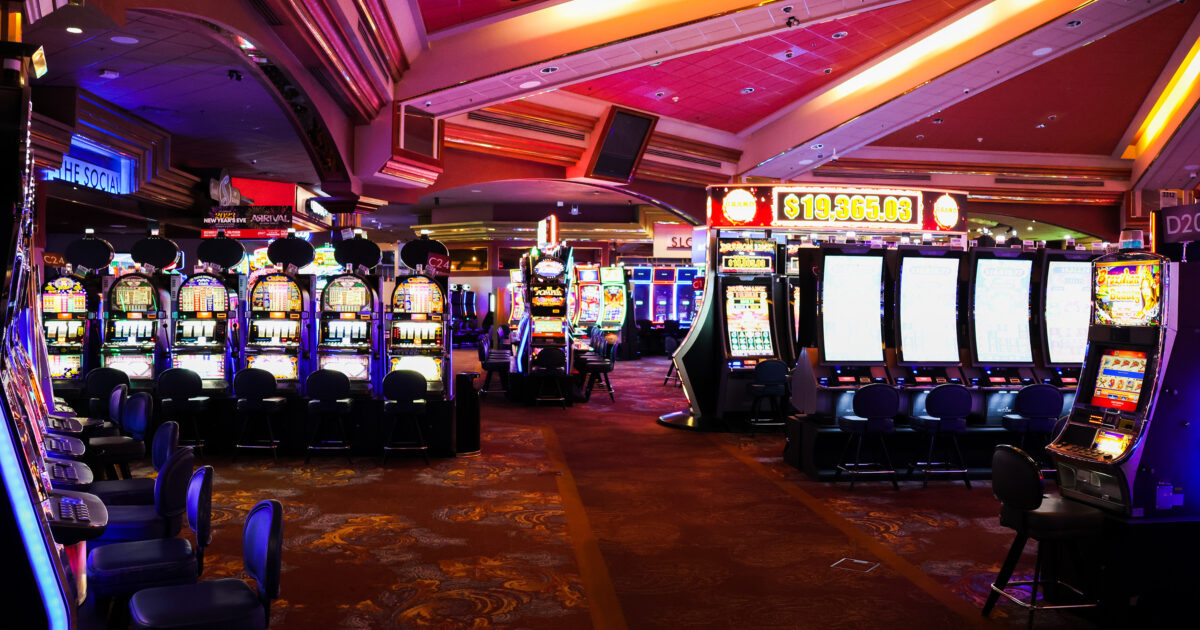
Gambling games have long captured the imagination of individuals around the world, becoming an important part of both entertainment and society. From the sparkling lights of Nevada to the engaging experience of online gaming, these games evoke excitement, risk, and sometimes even a sense of remembrance. They are more than simply hobbies; they have woven themselves into the fabric of our lives, influencing various aspects from movies and music to style and books.
The appeal of casino games transcends the wagering aspect, tapping into wider themes of serendipity, possibility, and social interaction. As players convene around a card table or spin the roulette wheel, they engage in an ancient ritual that echoes with our communal desire for excitement and uncertainty. This obsession has led to the emergence of many references in movies, music, and electronic games, showcasing how strongly entrenched these activities are in pop culture. Whether it is the intense drama of a classic caper or the colorful nightlife portrayed in music videos, casino games have established a substantial place that reflects our connection with risk.
Historical Significance of Casino Games
Casino games have played a crucial role in social contexts throughout history. Stemming from ancient societies, forms of chance were often connected to ceremonies or events. For instance, early iterations of gambling can be linked back to historic Chinese and the Romans, where die games and wagering on results were popular pastimes. These activities not only functioned as entertainment but also as means of social interaction, facilitating relationships among individuals within societies.
As cultures evolved, so did the sophistication and structure of gambling games. The establishment of formal casinos in the 17th century, particularly in Italy, marked a major shift in how games were perceived and organized. With designated spaces for gaming, the casino became a community center where patrons from different backgrounds gathered. This evolution contributed to the validation of gambling, transforming it from a mere pastime into an established industry that influenced the economy and policy.
The effect of casino activities on mainstream culture cannot be overlooked. As they were brought into the limelight in books and movies, games such as poker and 21 became icons of risk, chance, and strategy. Iconic figures and narratives have emerged around these games, reflecting societal attitudes towards fortune, wealth, and immorality. This interest with gambling games has permeated various forms of entertainment, cementing their place in the collective consciousness and connecting them to broader cultural stories throughout history.
Representation of Casino Games in Media
Casino games have long been a popular theme in different types of entertainment, reflecting both the thrill and intricacies of gambling culture. Movies such as Ocean’s 11 and Casino Royal portray individuals who navigate high-stakes environments, showcasing not only the attractiveness of the casino atmosphere but also the strategies and judgments that come with playing popular games like Texas Hold’em and 21. These films often dramatize the excitement of winning and the potential repercussions of losing, encapsulating the dangers involved in betting.
TV programs have also explored the universe of casino games, often integrating them into the plot as a setting for character development and drama. Series like Vegas depict the lives of gambling employees and patrons, highlighting the vibrant, often tumultuous energy of the casino floor. Reality shows featuring intense betting contests further emphasize the attraction of casino games, drawing viewers into the excitement and planning involved in each session. Through these representations, media not only amuses but also prompts conversations about luck, skill, and the nature of randomness.
Digital games have increasingly incorporated casino games into their development, allowing players to recreate the experience of gambling without monetary loss. Titles within the domain of online gaming often include virtual slots, online poker, and other casino favorites, creating an interactive experience that mirrors real-life gameplay. These digital representations make gambling activities accessible to a worldwide viewer base, appealing to both risk-takers and those who enjoy the thrill of virtual experiences. As a outcome, the portrayal of casino games in entertainment continues to shape societal views and cultural relevance, highlighting their role in society and the cultural landscape.
Impact of Gambling Activities on Communities
Casino games have a significant effect on communities, influencing various aspects of culture and interpersonal behavior. They often serve as a platform for social interaction, where people come together to enjoy a common experience. Casino trips with friends or trips to casinos become group events that build connections and create memories. This communal aspect boosts the fun value of casino games, making them a popular choice for celebrations and recreational pursuits.
Additionally, casino games have been portrayed in numerous movies, television shows, and literature, influencing views and attitudes towards gambling and betting. Icons like James Bond competing in baccarat or the intense poker scenes in films have embedded these games in the shared imagination. tỷ lệ nhà cái This depiction often glamorizes the lifestyle associated with casino activities, attracting new players and influencing trends in both style and behavior. These representations can spark curiosity and lead to a more profound exploration of the intricacies of gaming.
Nonetheless, there are also negative consequences associated with the popularity of casino games. The temptation of quick monetary gain can lead to gambling addiction and financial troubles for some individuals. The community must grapple with these consequences, promoting responsible gaming and education of the risks involved. Finding a balance between the fun aspect of gambling activities with the risks is crucial to ensure that they continue to be a beneficial aspect of our cultural landscape.
